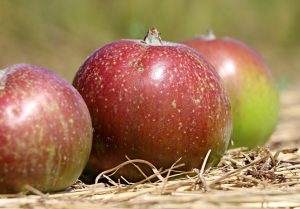
Fruit we leave behind depends on tending our life on earth.
Blessed are those who mourn, for they will be comforted (Matthew 5:4).
After his near-death experience (see previous post), Henri Nouwen offered more helpful reflections on death.
He believed in the afterlife and wrote of it as an extension of God’s love. But neither sulphuric odors from Hades nor perfumed scents from the sweet by-and-by rise from the pages. His writings on death invite us to a more loving life today, here on earth:
All that I have learned through life and all that I experienced during my encounters with death have taught me that death is like a second birth, leading me to a new way of living. I had nothing to say about my first birth. But I have a lot to say about my second birth and I can get ready for it.[1]
Those lines pack a challenge: Live in such a way that your dying bears fruit.
He developed that challenge in a subsequent book, Our Greatest Gift: A Meditation on Dying and Caring. With characteristic transparency, he openly struggled with the challenge himself: Despite his accomplishments, he knew a busy, distracted life of building an impressive resume and obituary would not leave fruit that nourishes.
The real question before our death, then, is not, How much can I still accomplish, or How much influence can I still exert? but, How can I live so that I can continue to be fruitful when I am no longer here among my family and friends? That question shifts our attention from doing to being. Our doing brings success, but our being bears fruit. The great paradox of our lives is that we are often concerned about what we do or still can do, but we are most likely to be remembered for who we were. If the Spirit guides our lives – the Spirit of love, joy, peace, gentleness, forgiveness, courage, perseverance, hope, and faith – then that Spirit will not die but will continue to grow from generation to generation.[2]
How shall we shift attention from doing to being?
First,we can begin with the present moment, returning again and again to our breath and our senses, accepting ourselves and our experience as they are. Open to the present, we can open our hearts to the Lord of the present. Then we can weave that contemplative mindfulness into our daily round.
Yet, to follow through, we must abide in God’s unconditional love. “Our hearts are restless until they rest in thee,” Augustine said for us all. Only in that rest will we bear our final and most nourishing fruit, like a seed resting deep in the soil, dying, germinating, and growing anew into the sun.
On abiding in God’s unconditional love, Nouwen concluded Beyond the Mirror:
I say all of this so directly and so freely because I believe. I believe that my life, whether it is short or long, is a gift from God. I believe that God, who has given me my life, loves me with an everlasting love. I believe that this everlasting love is stronger than death, and I believe that everything that happens during my life offers me an opportunity to let my death become a rebirth.[3]
Related Posts:
Henri Nouwen: Witness to Heaven on Earth
Why I Believe in Eternal Life
Practice Mindfulness
Our Greatest Fear and Deepest Desire
Seeking God on the Go
[1] Henri Nouwen, Beyond the Mirror: Reflections on Life and Death. (New York: Crossroad, 1990), location 504 & 516, Kindle Fire.
[2] Henri Nouwen, Our Greatest Gift: A Meditation on Dying and Caring. (New York: HarperCollins, 1994), pp. 41-42.
[3] Nouwen, Beyond the Mirror, location 516, Kindle Fire.

0 Comments